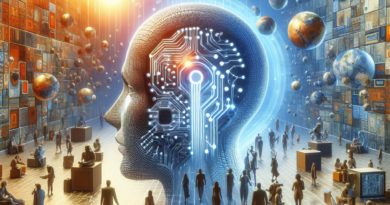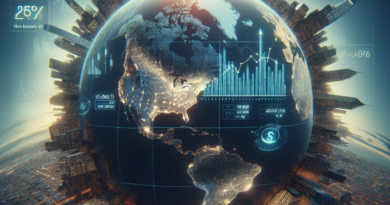Three Degrees to Avoid: Careers Predicted to Disappear According to AI
The Changing Landscape of Employment
The work environment is undergoing a significant transformation.
With the rise of artificial intelligence (AI), we may soon witness the decline of various jobs that were traditionally performed by skilled human hands and intellect.
Machines are set to take on roles that were once considered irreplaceable, marking the path towards an inevitable future of progress.
As certain jobs fade away, the corresponding educational paths will also become obsolete, failing to provide the necessary professional growth and job market entry.
It is crucial for students embarking on university studies to understand which degrees and careers may lose relevance in the future.
ChatGPT has conducted a thorough analysis revealing three degrees and their associated professions that are likely to become outdated.
Here they are.
The Three Professions Facing Extinction Due to AI
The revolution in the workforce has just begun, and in a few years, these jobs will cease to exist as AI takes over their responsibilities.
Topping the list is accounting, specifically the role of the accountant.
Traditional accounting practices will be replaced by automation and sophisticated software.
Tasks like invoicing, payroll management, and bookkeeping will increasingly rely on optimized algorithms, enhancing efficiency, minimizing errors, and ultimately reducing costs for businesses.
To remain relevant, accounting professionals will need to specialize in data analysis and financial interpretation, as their operational roles diminish.
Another sector significantly impacted by AI is telecommunications.
With advancements in wireless technologies, fiber optics, and innovations like 5G, the demand for technicians to manage physical cables and connections has decreased.
Consequently, the future for skilled personnel in maintaining and installing physical networks appears uncertain.
Those pursuing studies in this field should pivot away from operational roles and focus on emerging areas such as data analysis, AI applications in networks, and cybersecurity.
The third sector at risk is administrative roles, such as secretaries and assistants.
Tasks that once required a human touch—managing schedules, coordinating meetings, organizing documents, and handling correspondence—will increasingly be handled by AI applications, virtual assistants, and productivity software.
As a result, the responsibilities of secretaries will shift, with a growing emphasis on project management, virtual team coordination, and strategic decision-making rather than routine administrative tasks.
Jobs That Will Remain Resilient Against AI
Conversely, some professions are likely to remain untouched by the rise of AI, particularly those that require high levels of personal interaction and manual skills.
Healthcare workers and educators, for example, are roles that are expected to thrive amidst these changes.
Moreover, jobs with low exposure to automation and that require hands-on skills—including plumbers, electricians, carpenters, blacksmiths, dishwashers, and textile workers—will continue to be in demand.
Additionally, many careers will be enhanced by AI advancements, such as biomedical engineers, bioengineers, mathematicians, and editors, thus showcasing a future where AI complements rather than completely replaces human roles.
For further insights, explore “The Top 10 Jobs in the AI Sector” at [10 Best Jobs in AI](https://example.com).




